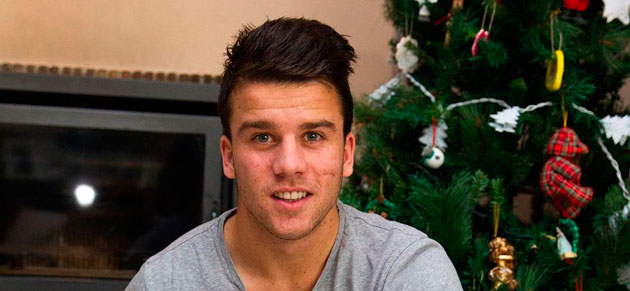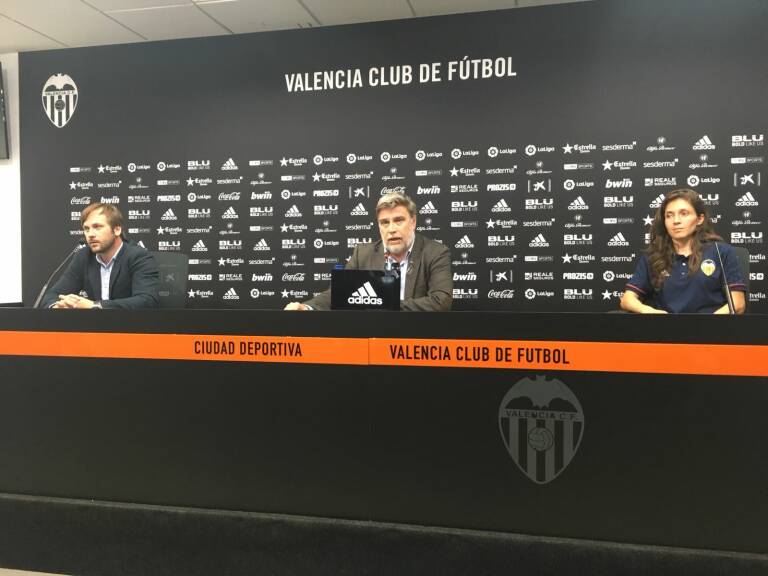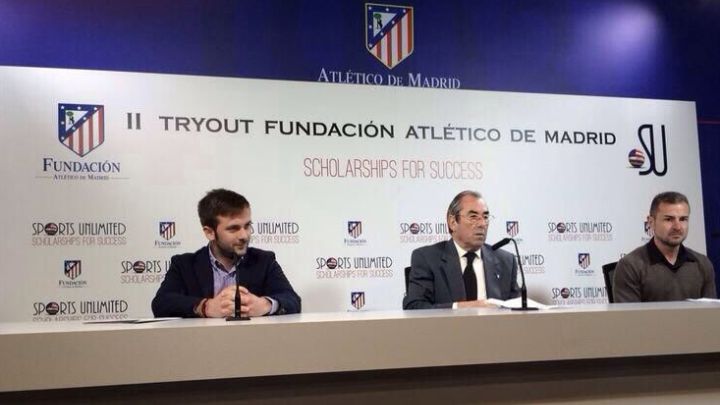“College soccer makes you feel like a real professional”
He is doing fantastically well at Northwestern Ohio thanks to a scholarship offered by the Atlético Foundation and Sports Unlimited. “At the same time you’re training as a player, they’re educating you”.
—How did you embark on this American adventure?
—I was studying in England and like every morning I went into as.com. I saw the news that the Atlético Foundation and Sports Unlimited were offering a scholarship in the United States to play soccer. For me that was a dream. I called my father and he thought it was a good idea. I showed up for the tests and was lucky enough to be signed up. All the universities that attended expressed interest in me. They told me they were looking for foreign players to raise their university’s level. In the end I accepted the best offer.
—And what did you find when you got there?
—I had the experience of university in England, I was OK about the language, but anxious to see how they would receive me. The coach came to pick me up at the airport and we went to see the team. They were all having dinner together and they made me feel at home. After a week it felt like I’d been there a year. I’m lucky because my coaches are Welsh and English, and from what they tell me, the North American coaches are too physical. Their teams run as much in minute 1 as they do in minute 90. But my team plays the ball well, it’s more of a tiki-taka style and that has helped me adapt.
—Is college soccer as professional as basketball?
—They all are, from softball, for example, to baseball, golf or soccer. Soccer is not so well known but they approach it as being one step away from being professional. Players don’t earn any money, but what they do is pay for your studies and accommodation. In terms of infrastructure, we have impressive facilities. With pitches for training under cover if the weather demands it. A lot of people go to the stadiums. A huge amount of money is invested in the sport.
—How do you combine your studies with soccer?
—Over there we train every day. I go to class from 9 am to 1 pm. After lunch, between 2.30 pm and 3 pm, I start training. Usually for two hours. Then you have to do specific hours of study. If you don’t do those library hours, you don’t play. During the season we play between two and three matches a week. So there are fewer training sessions and the ones we do are limited to technical and strategic stuff. I’m studying Sports Management and Marketing. Every Friday you have a meeting with the coach, who gets a report of your grades.
—What’s the standard in terms of soccer?
—Well, it depends on which university you take on. It depends on the years that the soccer programme has been in place at that university, on the number of international players they have…
—You caused a sensation scoring 9 goals in 17 games.
—American soccer players are more physical than technical. Soccer has differences. Over there the changes are unlimited, you can leave and re-enter. All matches that end in a tie have an extra time of 10 minutes each part with a golden goal. European and Latino players are more technical, we have a more tactical approach than the North Americans. Things have turned out well for me, but I didn’t do the pre-season with the team and I think I’m capable of more. The truth is that I’ve felt like a professional playing there.
—What steps does a soccer player have to take to get into MLS?
—First finish your degree and your years of eligibility. Then you go to the draft. Either directly or through an agent, you contact an MLS team and test with them.
—Considering what education and soccer are like in Spain, how much do you value this opportunity?
—It’s incredible. At the same time you’re training as a player, they’re preparing you for the future. Few soccer players can live only on what they have earned as professionals.



